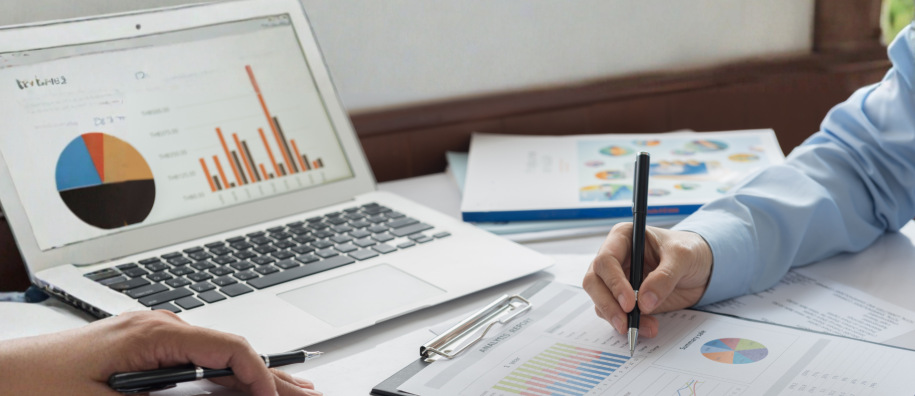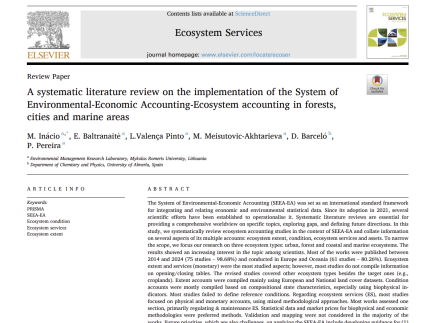
In Lithuania, increasing attention is being paid to how natural resources and ecosystems contribute to societal well-being. To make sustainable decisions, it is essential to have reliable data on the quantity and types of services provided by forests, water bodies, and urban green spaces. This is exactly what the internationally recognized United Nations System of Environmental-Economic Accounting – Ecosystem Accounting (SEEA-EA) helps to achieve.
A project titled “System of Environmental-Economic Accounts – Ecosystem Accounting in Lithuania” (SEEAL) (S-PD-24-18) has been launched to implement this system in Lithuania. The project is being carried out by Dr. Miguel Inácio, a senior researcher and postdoctoral fellow at the Environmental Management Laboratory of Mykolas Romeris University (MRU), under the supervision of Prof. Dr. Paulo Pereira. Its main objective is to develop physical ecosystem accounts that allow for accurate assessment of the extent, condition, and services provided by ecosystems.
The first stage of the project focused on identifying priority ecosystems in collaboration with stakeholders. During an online discussion, experts and representatives of various institutions selected four groups: forests, urban areas, coastal, and marine ecosystems.
Based on these priorities, a systematic literature review was conducted, analyzing the latest scientific studies on the application of SEEA-EA in these ecosystems. The results of this review were published in the international Ecosystem Services Journal in an article titled “A systematic literature review on the implementation of the System of Environmental-Economic Accounting-Ecosystem accounting in forests, cities and marine areas.” The article is openly accessible to the scientific community, institutions, and the general public.
The results have also been presented at two international conferences: The General Assembly of the European Geosciences Union (EGU), held in Vienna from April 7 to May 2, 2025, and the Ecosystem Services Partnership (ESP) World Conference, which took place in Darwin, Australia, on June 23–27, 2025.
The full publication is available through the provided link. For more information about the project or its results, please contact Dr. Miguel Inácio by email: miguel.inacio@mruni.eu.
